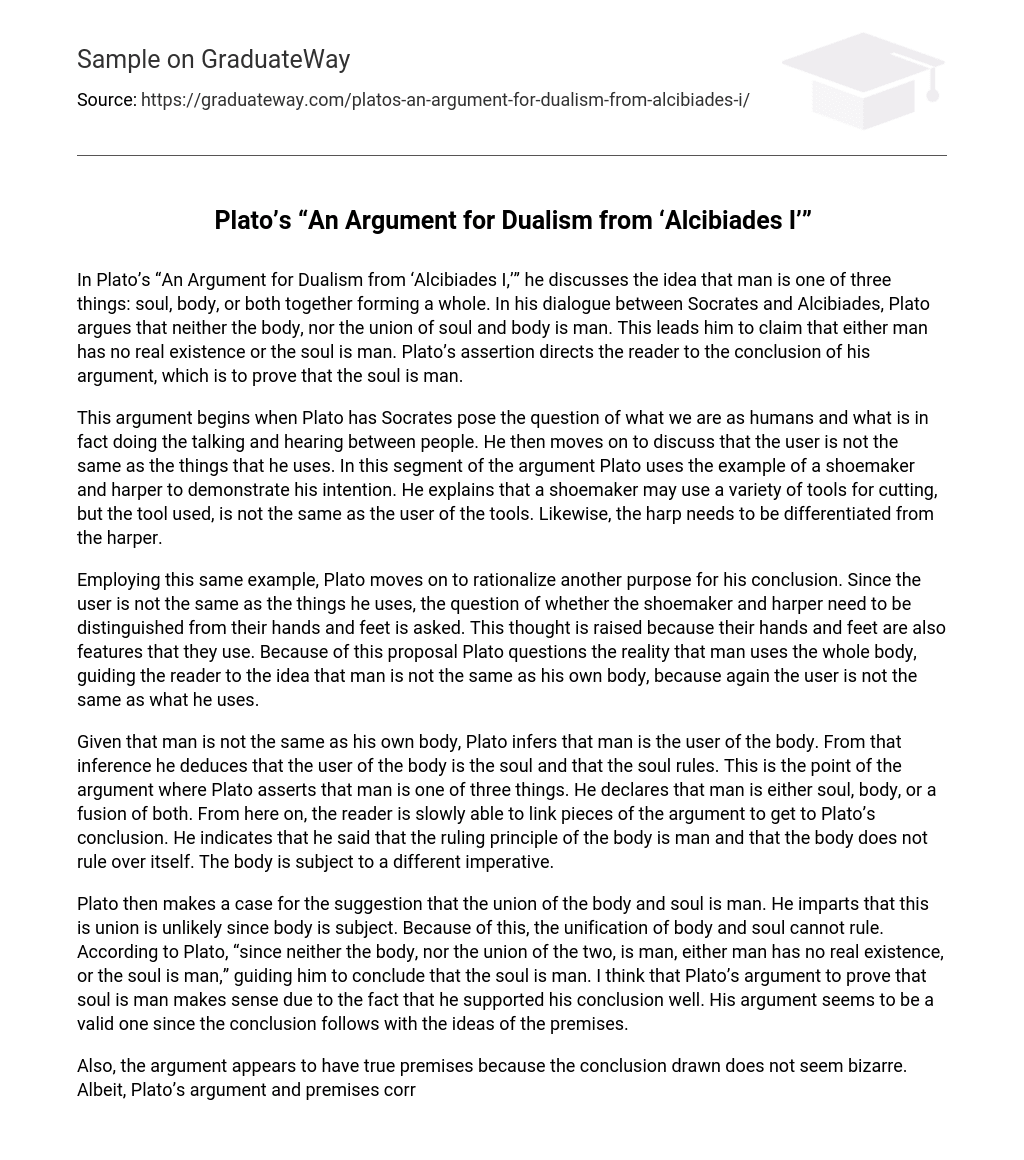In Plato’s “An Argument for Dualism from ‘Alcibiades I,’” he discusses the idea that man is one of three things: soul, body, or both together forming a whole. In his dialogue between Socrates and Alcibiades, Plato argues that neither the body, nor the union of soul and body is man. This leads him to claim that either man has no real existence or the soul is man. Plato’s assertion directs the reader to the conclusion of his argument, which is to prove that the soul is man.
This argument begins when Plato has Socrates pose the question of what we are as humans and what is in fact doing the talking and hearing between people. He then moves on to discuss that the user is not the same as the things that he uses. In this segment of the argument Plato uses the example of a shoemaker and harper to demonstrate his intention. He explains that a shoemaker may use a variety of tools for cutting, but the tool used, is not the same as the user of the tools. Likewise, the harp needs to be differentiated from the harper.
Employing this same example, Plato moves on to rationalize another purpose for his conclusion. Since the user is not the same as the things he uses, the question of whether the shoemaker and harper need to be distinguished from their hands and feet is asked. This thought is raised because their hands and feet are also features that they use. Because of this proposal Plato questions the reality that man uses the whole body, guiding the reader to the idea that man is not the same as his own body, because again the user is not the same as what he uses.
Given that man is not the same as his own body, Plato infers that man is the user of the body. From that inference he deduces that the user of the body is the soul and that the soul rules. This is the point of the argument where Plato asserts that man is one of three things. He declares that man is either soul, body, or a fusion of both. From here on, the reader is slowly able to link pieces of the argument to get to Plato’s conclusion. He indicates that he said that the ruling principle of the body is man and that the body does not rule over itself. The body is subject to a different imperative.
Plato then makes a case for the suggestion that the union of the body and soul is man. He imparts that this is union is unlikely since body is subject. Because of this, the unification of body and soul cannot rule. According to Plato, “since neither the body, nor the union of the two, is man, either man has no real existence, or the soul is man,” guiding him to conclude that the soul is man. I think that Plato’s argument to prove that soul is man makes sense due to the fact that he supported his conclusion well. His argument seems to be a valid one since the conclusion follows with the ideas of the premises.
Also, the argument appears to have true premises because the conclusion drawn does not seem bizarre. Albeit, Plato’s argument and premises correspond together, I would still argue against his supposition. To me, the soul is something that is impalpable. Declaring that the soul is synonymous with man creates an impression that man is also an entity that is intangible. I am opposed to this notion, as we all know that man is something of substance. Man is real, pure, physical, and tangible. For that reason, I do not agree Plato’s proposal that soul is man.





